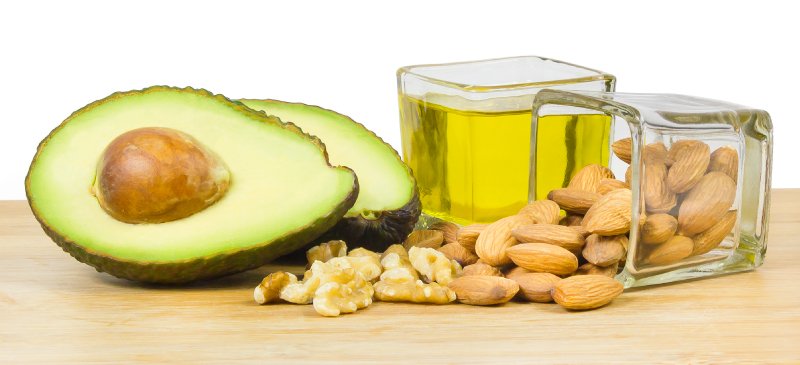
If you’re someone who’s prone to developing high cholesterol, you may be interested in supplements that help support overall cardiovascular health, especially those that keep LDL cholesterol levels within a healthy range. One example is the plant sterol called beta-sitosterol.
What does beta-sitosterol do? According to the U.S. Food and Drug Administration (FDA), scientific evidence demonstrates that diets that include plant sterols such as beta-sitosterol may reduce the risk of coronary heart disease. Phytosterols do this by blocking how much cholesterol is absorbed in the body once it’s consumed.
While phytosterol supplements are one convenient option, you can also get these beneficial compounds by eating healthy foods like like nuts, seeds, beans and some oils.
What Is Beta-Sitosterol?
Beta-sitosterol (B-S) is a phytosterol, which is a beneficial type of compound found in certain plant foods.
What is beta-sitosterol good for? Because it’s a phytosterol — also called a plant sterol or sterol ester, which has a structure that mimics that of cholesterol — it can help naturally lower cholesterol and potentially lower the risk for developing heart disease.
It’s sometimes also used to help manage other symptoms and conditions, although there’s less research at this time confirming that it works well for these purposes. For example, in some case, it might be taken in supplement form to support prostate health and prevent allergies, asthma, gallbladder disease, tuberculosis, PMS, and joint and muscle pains.
Benefits
Below is more about some of the main beta-sitosterol benefits:
1. Can Help Lower LDL Cholesterol
One of the most common uses for B-S supplements and benefits of eating beta-sitosterol foods is helping reduce absorption of cholesterol in the intestines. This lowers LDL “bad cholesterol,” which is linked with increased risk for heart conditions such as coronary artery disease and atherosclerosis.
Studies show that people who maintain low blood total cholesterol and LDL cholesterol levels tend to eat diets that are not only low in total fat, especially saturated fat and cholesterol, but are also relatively high in plant foods that contain dietary fiber and other components.
How much do you have to consume to help with cholesterol balance? Experts recommend consuming at least two grams of phytosterols per day from healthy foods, such as nuts and seeds, in addition to exercising regularly to support overall cardiovascular function.
B-S supplements might also be recommended for people with hypercholesterolemia at doses above 200 mg/day.
While phytosterols can help lower total and LDL cholesterol levels, they won’t raise “good” high-density lipoprotein (HDL) cholesterol levels, so it’s still important to consume healthy fats as part of a balance diet.
2. May Help Prevent Prostate Problems
B-S is used to reduce symptoms associated with benign prostatic hyperplasia (an enlarged prostate), which can cause problems with control of urination and urination frequency in men.
It’s thought to work by binding to the prostate to help reduce swelling and inflammation, which can cause discomfort and the urge to urinate. However, the exact mechanism of how it works isn’t entirely known, just that it’s related to cholesterol metabolism and anti-inflammatory effects.
A 2000 Cochrane review aimed to assess the effects of beta-sitosterols on urinary symptoms and flow measures in men with of benign prostatic hyperplasia and concluded that evidence suggests B-sitosterols do improve both, even though it didn’t result in a reduction in actual prostate size.
READ RELATED: Aloe Vera Juice: the Gut-Friendly, Detoxifying Drink
The American Urological Association reports that by the age of 60, over 50 percent of men will have BPH, and by age 85, 90 percent of men will have this condition. In addition to upping one’s intake of plant sterols, other supplements that can help men with BPH include saw palmetto, pygeum and lycopene.
3. May Have Immune-Supporting and Cancer-Fighting Effects
Some evidence suggests that B-S might be capable of inducing apotheosis (cell of cancer cells) and inhibiting the growth of certain types of human cancer cells, such as those that contribute to colon cancer and breast cancer. It’s not used alone as a cancer treatment — rather it’s considered an adjunct to other medications and procedures.
There’s also limited evidence showing that it may help improve immune function, particularly among athletes who engage in intensive exercise.
Risks and Side Effects
Although B-S is safe when consumed from foods and generally considered safe when taken as a supplement, it’s possible that it might cause side effects in some people, such as:
- indigestion
- nausea
- bloating
- diarrhea
- constipation
- changes in cholesterol levels
- erectile dysfunction
It’s intended to be used for up six months, so speak with your doctor if you plan to supplement longer than this.
People who take medications to control their cholesterol levels should consult with their doctors before beginning to supplement with beta-sitosterol, since it may change the way some cholesterol-lowering drugs work.
Those who have the genetic disorder phytosterolemia, which causes over-absorption of phytosterols, should also carefully avoid B-S supplements and speak to their doctors about how many foods that contain phytosterols are safe to consume.
Foods
Phytosterols, including B-S, are found in foods that naturally contain fats, such as nuts, seeds, avocado and vegetable oils. Although they are low-fat foods, some legumes also contain beta-sitosterol.
Below are examples of some of the richest beta-sitosterol foods:
- Canola oil
- Avocado
- Vegetable oils made from things like nuts and seeds, such as soybean oil (which some experts don’t recommend as much compared to healthier oils like olive oil or avocado oil)
- Salads dressings made with vegetable oils
- Pistachios
- Almonds
- Fava beans
- Hazelnuts
- Walnuts
- Pecans
- Macadamia nuts
- Pink lentils
- Rice bran
- Wheat germ
- Peanuts
- Some types of margarines and mayonnaises made with vegetable oils
Supplements and Dosage
In supplement form, B-S is usually taken as a capsule by mouth, sometimes in divided doses several times per day. It appears as a white, waxy powder that sometimes has an off-putting odor.
In addition to being a supplement, it’s used as a food additive.
How much beta-sitosterol should you take? Dosage recommendations vary depending on your current health and which condition you’re treating.
A typical dosage for adults is between 150 and 2,500 milligrams daily, which higher doses suggested for people with inherited high cholesterol levels.
It’s considered safe for most people to take 800 mg/day for up to six months, which is the amount that may be recommended for cholesterol-lowering effects. Lower doses around 150 mg/day may be best for treating bladder and prostate issues.
Read directions for the specific product that you purchase, since dosages vary. You may need to take divided doses two to three times daily, usually before meals.
Conclusion
- What is beta-sitosterol? It’s a compound found in plants such as nuts, seeds, oils and legumes that mimics cholesterol and can help to reduce blood levels of LDL cholesterol.
- It’s consumed from foods and also in supplement form, most often by those looking to reduce their LDL and total cholesterol levels and to improve prostate health.
- The best way to add this beneficial plant sterol to your diet is to consume healthy foods like nuts and seeds, which also provide fiber and other nutrients. It may be less beneficial when you get it from refined vegetable oils, such as canola and soybean oil.
- Read directions for the specific product that you purchase, since dosages vary. You may need to take divided doses two to three times daily, usually before meals, that are between 150 and 1,000 mg/day (or possibly more).
Source: Dr. Axe | Nutrition






